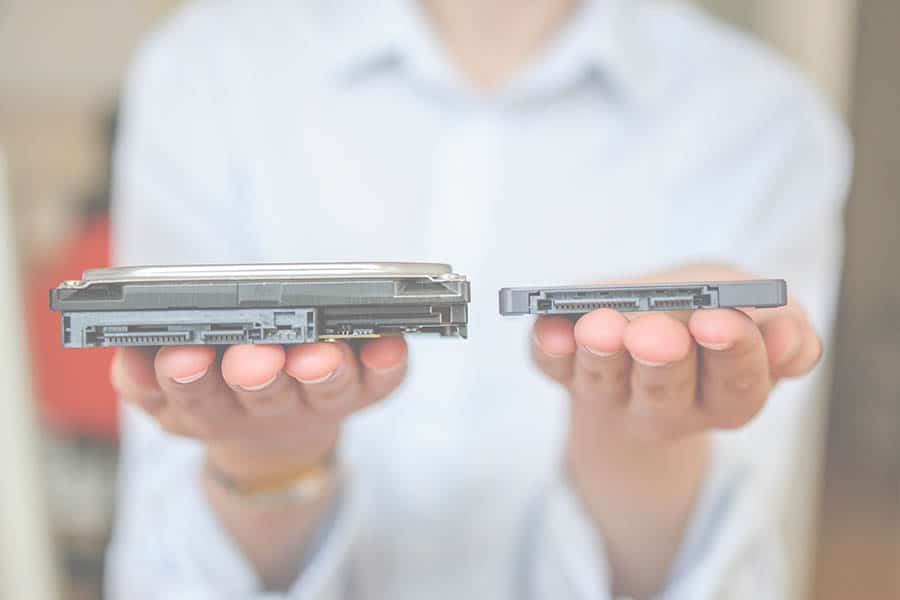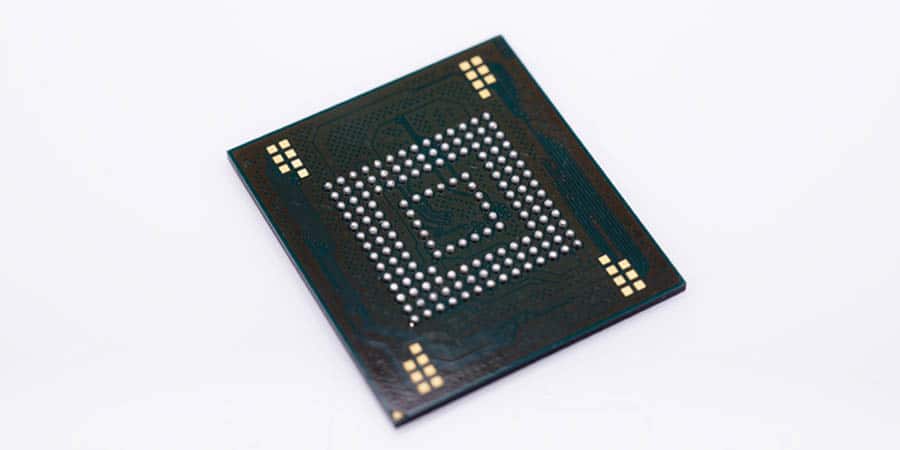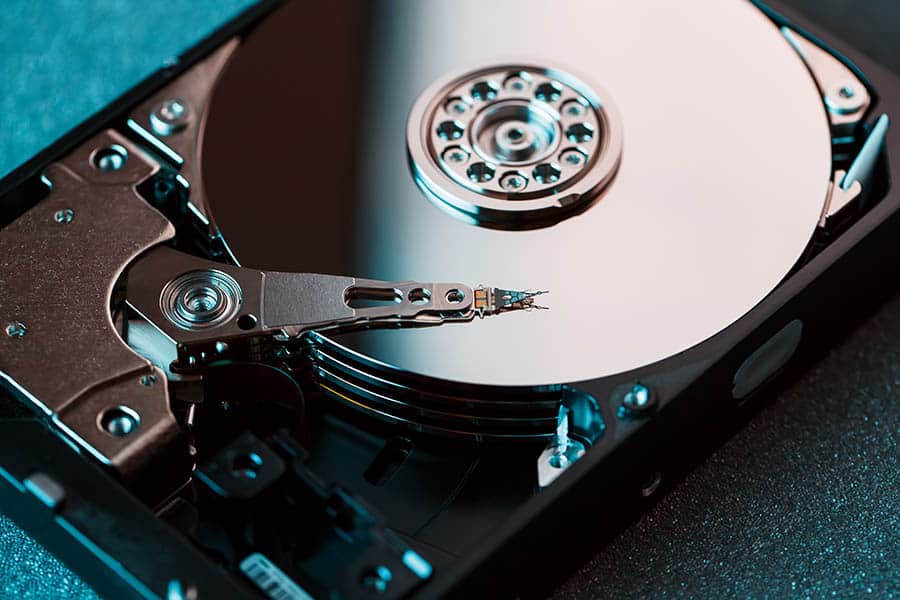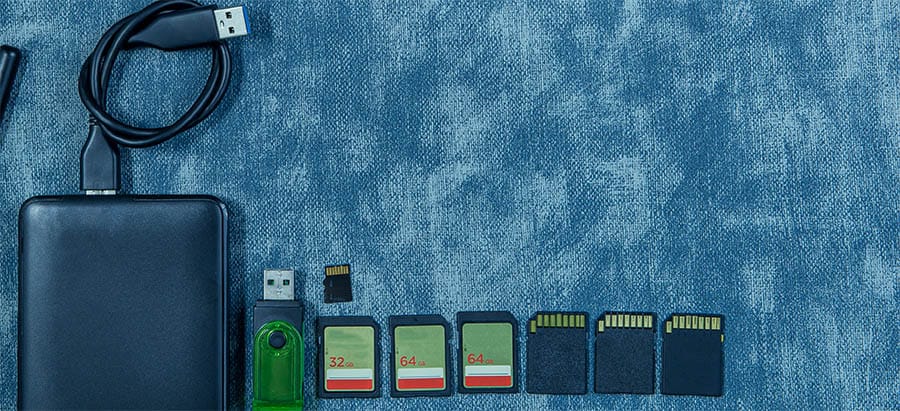When you’re looking to purchase a laptop, you’ll see that the specs can be quite confusing. Sure, you might understand that RAM is the accessible storage on your laptop, and you even probably know that when a laptop is 256GB, this refers to the amount of storage space on your laptop. But what about the type of storage that your laptop is using?
Nowadays, the best laptops on the market will come with SSD storage – this is true for the premium laptops at least. However, you will still find cheaper laptops that are sold with eMMC storage instead. And if you have an old laptop, then it might even have HDD storage. But how to these all differ? Let’s take a look at the differences between them.
SSD vs eMMC vs HDD
In short, nowadays an SSD is the best choice to go for out of these three different forms of storage. They’re faster, more resilient and you’re going to get a better performance overall with this type of storage.
An alternative to this for those looking for a cheaper form of storage is eMMC. This is only really used in budget laptops, as you’ll typically find this kind of storage in mobile phones. Another older form of storage is HDD, which can still work well as an external drive. Let’s look at all of these in a little more detail.
SSD
SSD stands for Solid State Drive, and they’re the most popular in the current market of computing. An SSD is what comes in the majority of laptops nowadays, and if you want the best option available, then you want to stick with an SSD over the other storage methods.
Although SSDs have been used for decades, they haven’t been as readily available on the market for that long. However, nowadays with modern technology we can make SSDs with the same capacity as HDDs, which has been a gamechanger.
Another reason why SSDs have become to most used option is that they use less power than a HDD. This, in turn, ends up giving the laptop a better battery life as well. If you want a good external storage, check out this list of the top external SSD drives available.
- An SSD is the fastest of the three options, and it can be more than 5x faster than using a HDD alternative.
- It’s also undoubtedly the most expensive out of these options too, however in most cases, it’s worth it.
- SSDs are definitely the more durable of the choices, which is another reason why they’ve become to go to for new laptops.
- In comparison to the older HDD, an SSD is smaller in size. This allows us to create thinner, lighter laptops.

So, it’s pretty clear for us to see why sold state drives are the preferred option for laptop manufacturers nowadays. They’re the faster, smaller and most reliable option of the three. Their read and write speeds make them a great choice for use with a laptop.
Any Macbook released in the last decade will have come with SSD storage, and it’s a similar story for their biggest Windows competitors too. Commonly, the smallest SSD size is 128 GB – any laptop that has less than this is likely to use eMMC storage instead.
eMMC
The majority of the time, you’re going to find eMMCs (which stands for embedded multimedia card) used in phones and tablets. However, some brands also use eMMCs in lower spec laptops too.
You’ve probably guessed that the “embedded” part of its name is due to the fact that it’s embedded into the motherboard of the laptop. But what exactly is an eMMC? Well, it’s actually made up of the multimedia card itself, as well as flash memory, which is one the most widely used forms of storage.

Not only are eMMCs typically slower than SSDs, but they usually don’t have as much storage space on them either. Most of the laptops you see that use eMMC storage will only have around 64GB or 128GB storage space.
This kind of laptop is fine if you’re going to take advantage of cloud storage instead (like Google Drive). You can’t upgrade your eMMC storage like you often can with SSD drives, though, as it’s soldered to the device’s motherboard.
- They’re primarily used in phones, but cheap laptop brands will also use eMMCs in their laptops too.
- To do this, they’re actually really small, and they’re the smallest of these three types of storage.
- eMMCs generally aren’t nearly as good as SSDs if you’re looking at something to use in a laptop. They’re still a better option than an old HDD, though.
- They still provide an acceptable choice for people looking for storage on a budget.
What kind of laptops use eMMC storage? Well, one of the main ones you’ll find on the market are Chromebooks. This is because their intent is for you to save most of your programs and files onto your Google Drive storage.
As well as this, you’ll probably find budget laptops with this kind of storage too – the intention is also for you to primarily use cloud storage instead of your laptops space.
Although I wouldn’t say avoid them altogether, if you want a laptop for the future then ideally you’ll want one with an SSD. Though for those on a tight budget, they could be a good option. Both SSD and eMMC are relatively fast in comparison to HDD storage.
HDD

Pretty much all laptops released nowadays will come with an SSD, or cheaper ones come with an eMMC. A HDD, which stands for hard disk drive, is seen as outdated for being used as the main internal storage of a laptop. In the past, they were the most popular form of storage for a laptop.
The largest of the three forms of storage, a hard drive is another non-volatile form of storage, which means that it will still retain data even when it’s turned off. They’ve been around for decades, and they’ve steadily decreased in usage in recent years.
But, this doesn’t mean that HDDs are obsolete – not by a long shot. However, HDDs can still be very useful to use as external hard drives. Why?
Well, they give you the ability to save a lot of data at a really cheap price – you can pick up a 1TB for around a quarter of the price of an SSD. This means that if you have a lot of files that you need to save, then a HDD might prove to be a better choice.
- No new laptops are being released with HDDs because they’re too slow.
- Despite being slow, if you want a cheap way to store your files securely then a HDD can still do a good job.
- They’re a better choice if you have a ton of files too, as you can get HDDs that have more than 10TB of space.
You can consider upgrading to a better form of storage if you have a HDD installed in your computer or laptop. If you want to prevent data loss in an older device, then you’ll need to keep using the storage or copy it over to a new computer.
If you leave your hard drive alone for years, then eventually it can result in data loss. Although a 5 or 10 year old computer may turn on and work fine with full access to all of your storage, because a hard drive is more volatile, it’s advised to copy your files to another location if you’re not actively using it.
Other Storage Options

In the past, we’ve also used many other forms of storage to save our stuff. This includes;
- SD Card – Probably the most used of the alternative storage we used nowadays is SD card, which are good because they are typically made to be compatible with many devices. SD cards are ideal for short term storage and transferring data, but not the best in the long term.
- USB – For smaller files, a USB stick can still provide a good option if you want to carry something with you physically.
- Floppy Disk – If you’re as old as me, you probably remember when everyone used a floppy disk for their files. Nowadays, we don’t use them due to their low capacity – there are much more efficient options out there.
- CD – Although you might not think it, CDs are a form of storage! Nowadays they are also largely obsolete due to the fact we have much better options available.
- Nand Flash Memory – For smaller devices, Nand flash memory may be used as a storage solution. As a non volatile form of storage, it works well with portable devices.
Can eMMC be upgraded to SSD?
A common question is whether you can upgrade your laptops eMMC storage to SSD later down the line. The truth is that whilst this is possible, it’s actually very difficult to do this. The eMMC will actually be soldered to the motherboard, so you’ll need to disconnect this in order for you to add an SSD into the device. The reality is that if you’re not going to do this yourself, it’s going to cost a fair bit, and it’s probably not even going to be worth it.
How fast is eMMC?
If you’re looking to know the speed differences between an eMMC and an SSD, then on average an SSD is around 150mb/s faster. An eMMC has an average transfer speed of around 400mb/s. However, an SSD will have a much faster transfer speed than this – on average, even a cheaper SSD will have speeds of around 550mb/s.
Which is better, eMMC or HDD?
Even though an SSD is better than an eMMC, there’s still a reason why we used eMMCs over a HDD. A HDD will have very slow speeds of around 100mb/s, so around a quarter of the speed of an eMMC. But for bulk storage, we still tend to use a HDD, as their hard drive capacity is very high when compared to their low cost.
Is 64gb eMMC enough for a laptop?
If you’re looking to store any significant amount of files on your laptop, then 64GB isn’t going to be enough for you. These kind of eMMCs are generally targeted at people that will take advantage of cloud storage as opposed to hard drive storage, so you won’t use much of the eMMC space with tons of Word and Excel files, instead saving them within Google Drive or somewhere similar.
Related: Is 512GB Enough SSD Storage for your Laptop?
Conclusion
If you’re trying to work out which would be best for your laptop, then it’s undoubtedly going to be an SSD. They’re much faster than the other options out there, and although they are more expensive, it’s likely going to be worth the price.
For those trying to save cash, then an eMMC might be the only choice that you have. In terms of an eMMC vs SSD, then they can’t really compare on any level aside from their low cost. If this is the case, you’re just going to need to get used to using online storage options in tandem with your eMMC storage.
And nowadays, a HDD is only going to be the best choice for external storage with people who need large amounts of space, like gamers. Though they’re by no means extinct just yet, as many laptops will still come with some additional extra hard drive storage for you to use.